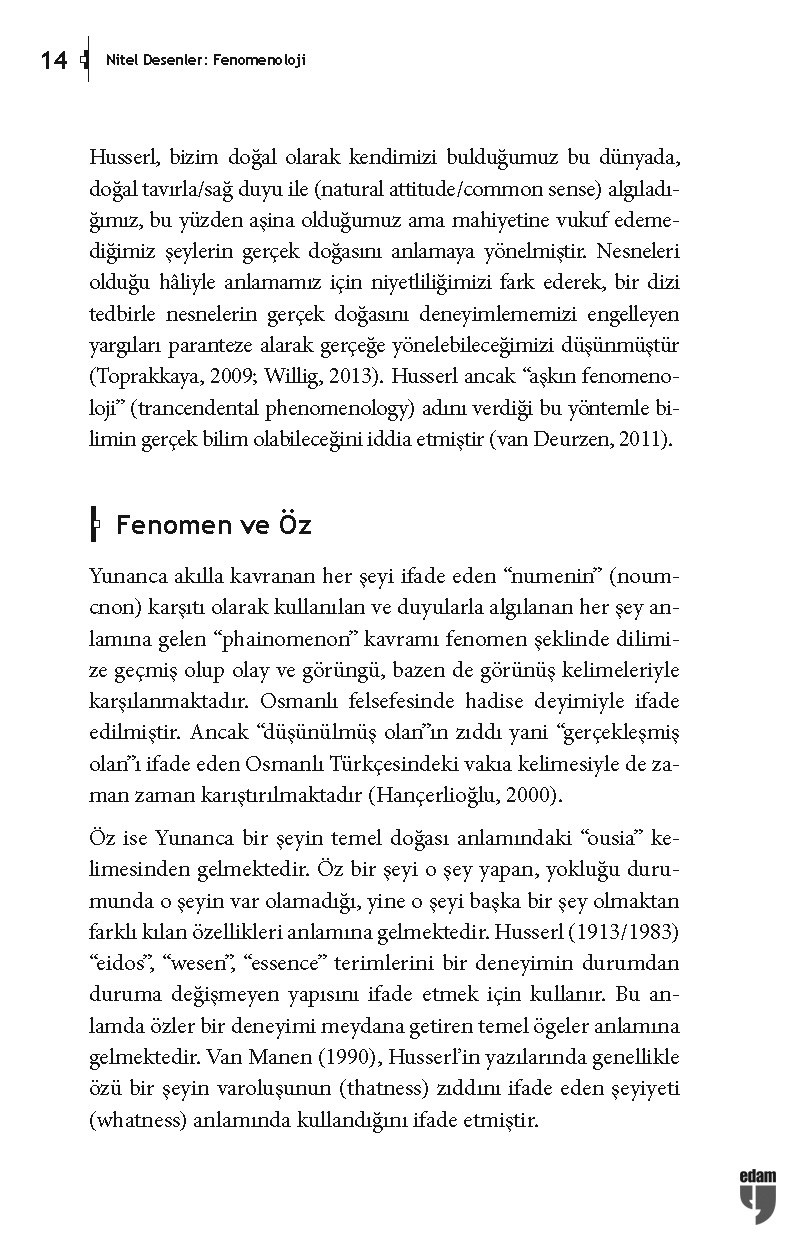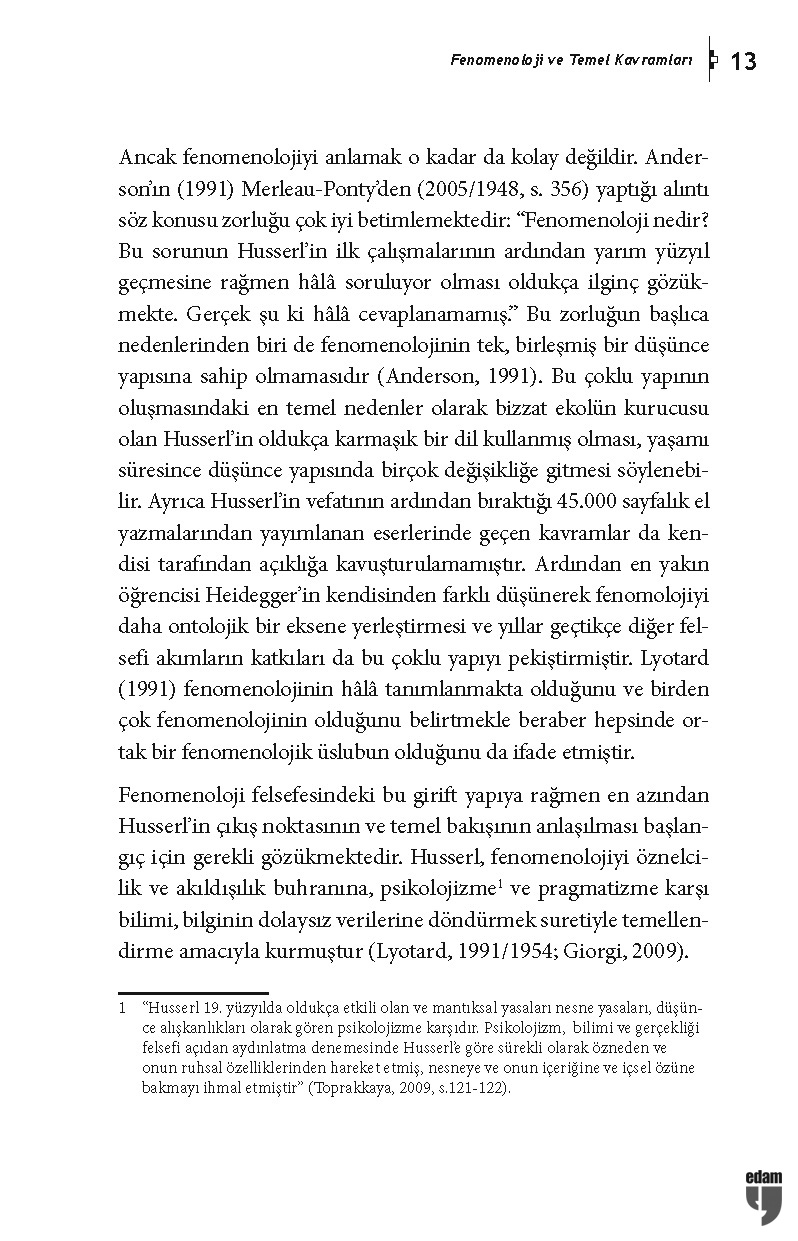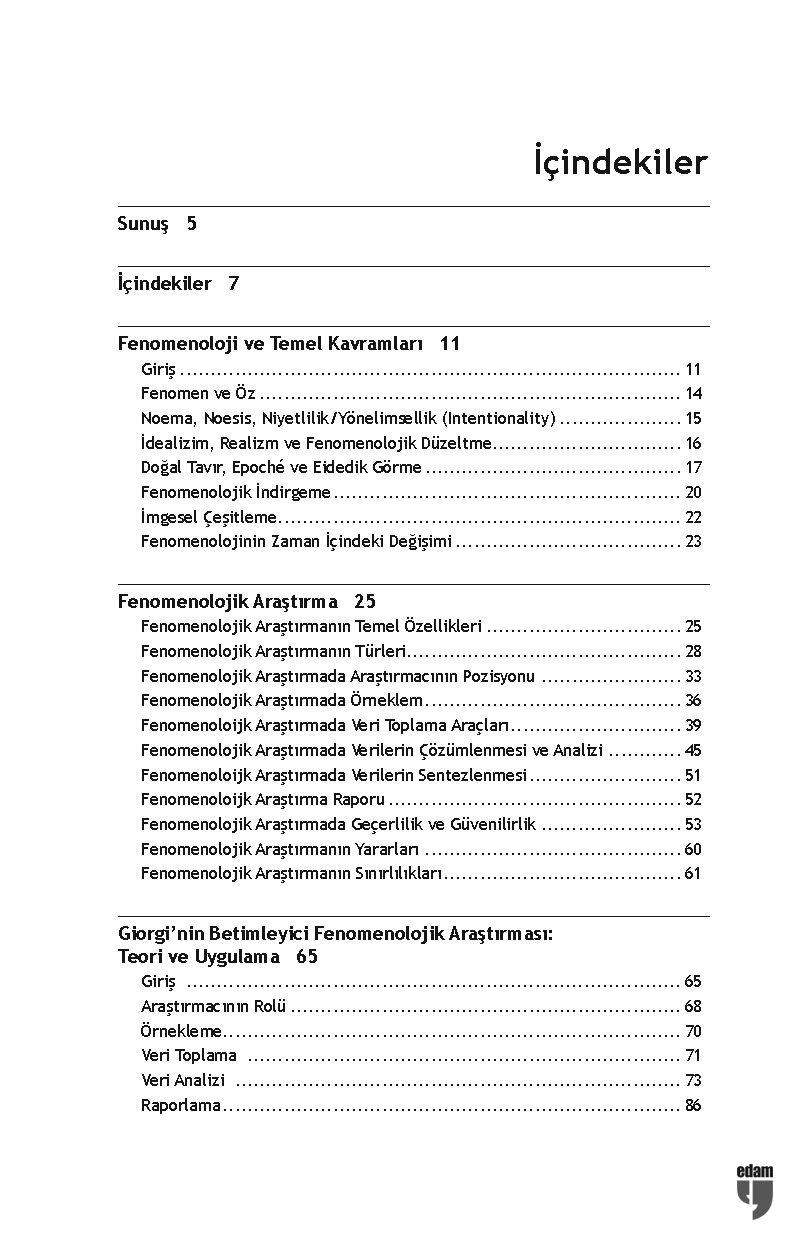Description
“Phenomenology is a philosophical approach that aims to understand an object as it exists within consciousness, from the point of view of the individual having the experience. This object within consciousness can include anything from tangible objects to complex relationships. The emphasis is not on an objective analysis that excludes the person experiencing it, but rather on understanding how the given object is perceived by the individual. The rationale for such an approach stems from the fundamental idea that “nothing can be understood or discussed without consciousness”.
This book begins by explaining phenomenology as a philosophical discipline. It then examines the contributions to qualitative research of prominent thinkers such as Husserl, Heidegger and Merleau Ponty, often considered the ‘pioneers of phenomenology’. It then explores the basic characteristics of phenomenological research. Phenomenological research is fundamentally concerned with the lived experiences of individuals and the processes through which these experiences are interpreted. While there are commonalities between phenomenological research methods, different phenomenological schools have emerged, each emphasizing either description or interpretation. This book carefully examines descriptive phenomenological research and interpretive phenomenological research methods, providing a comprehensive understanding of both approaches.













Reviews
There are no reviews yet.